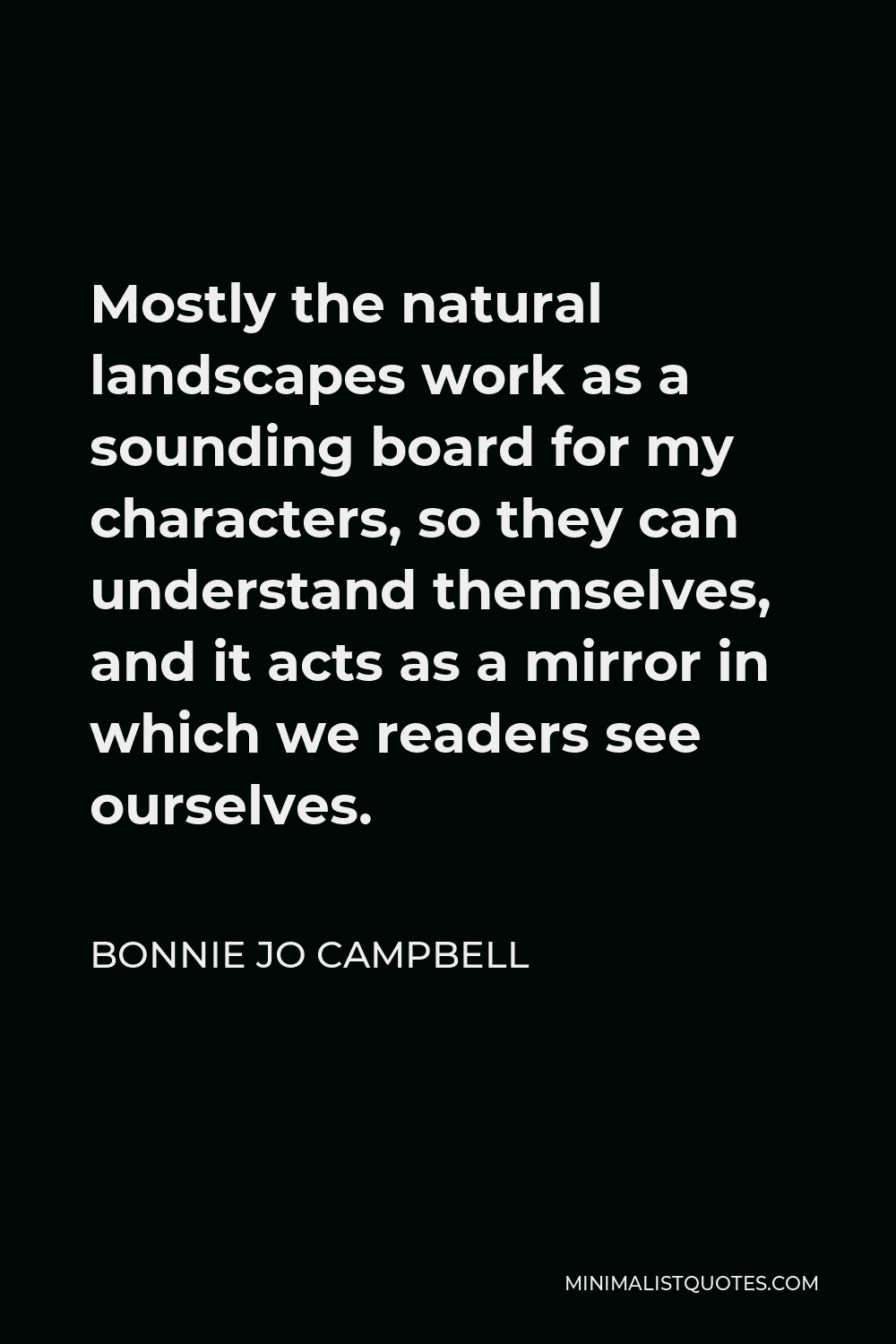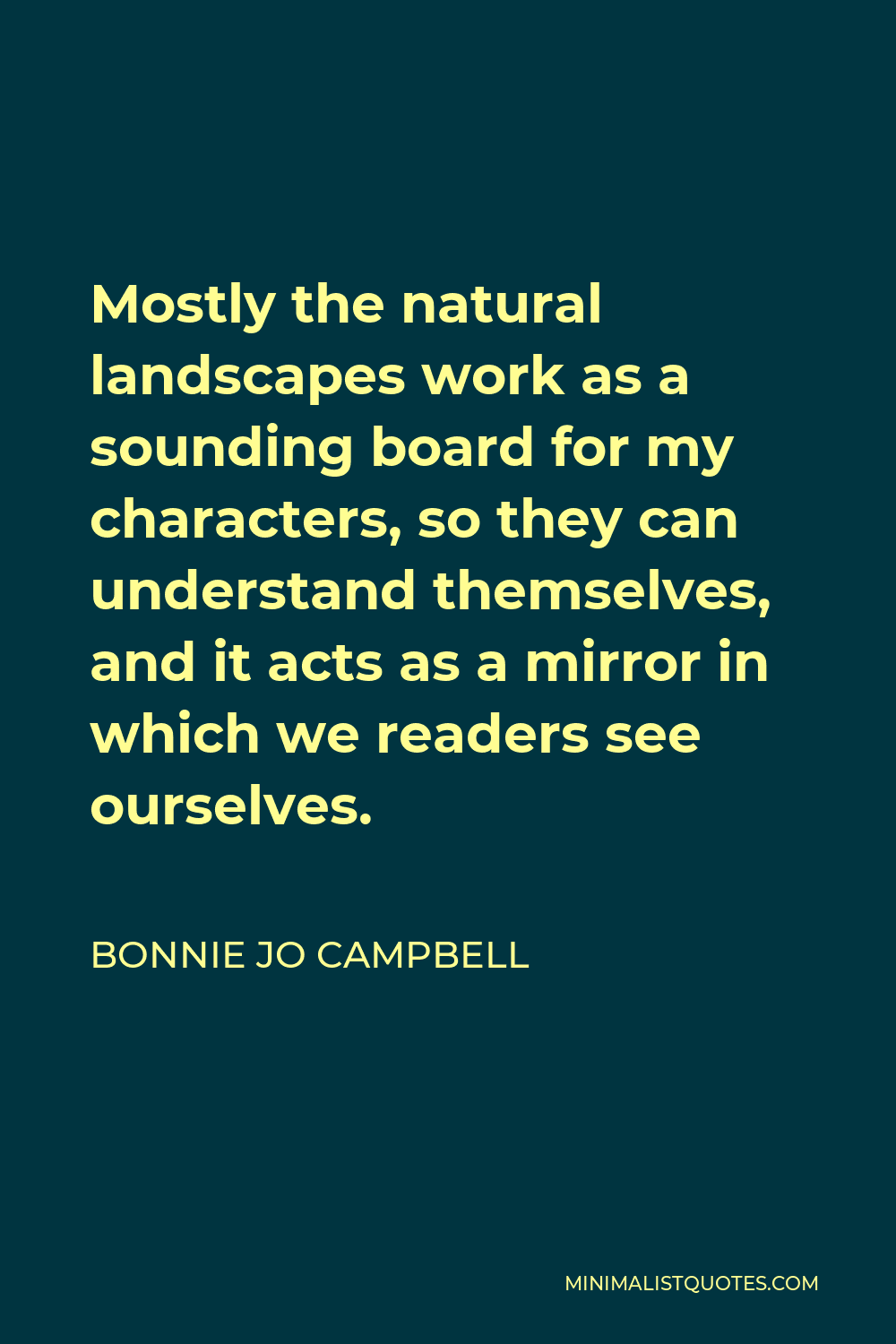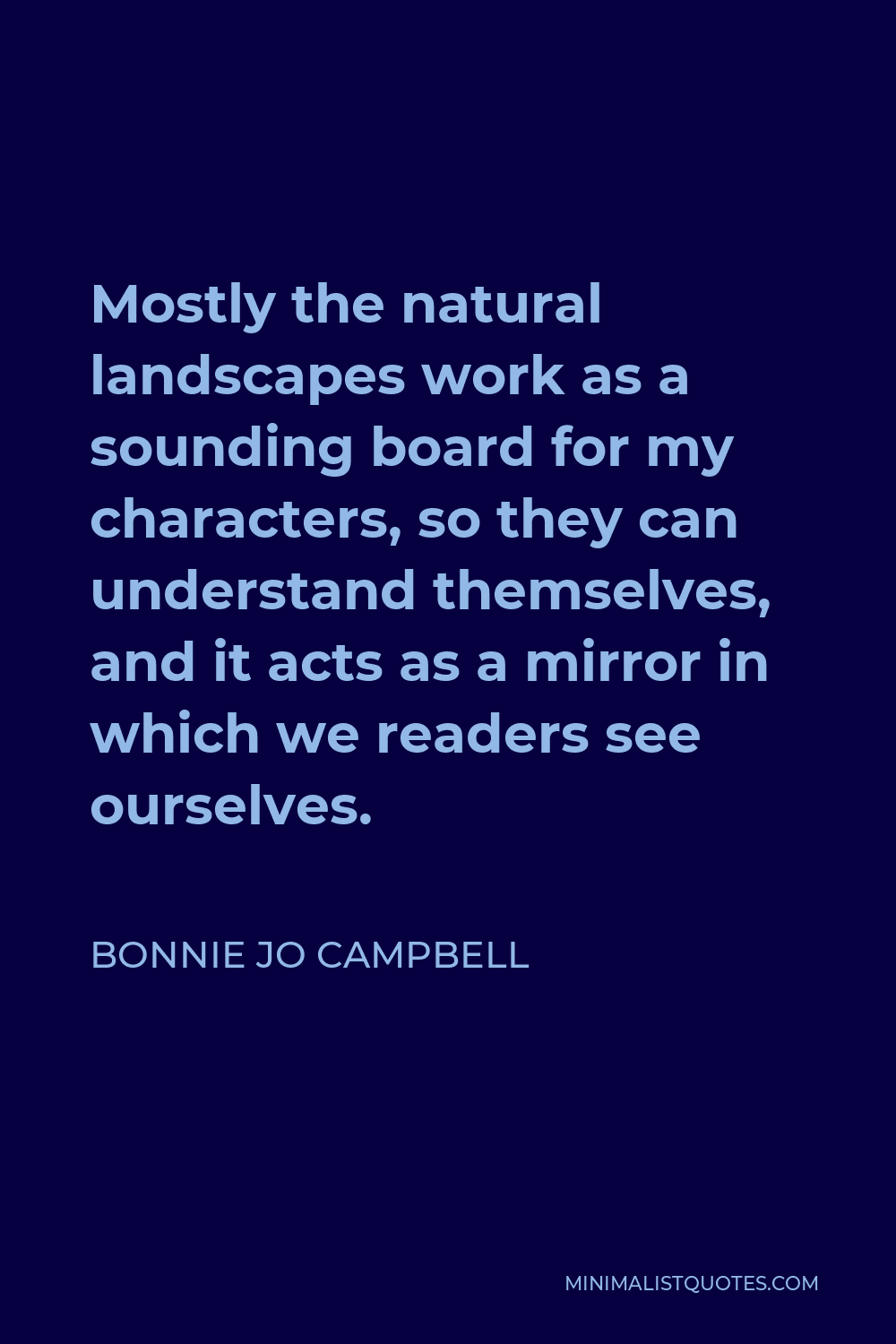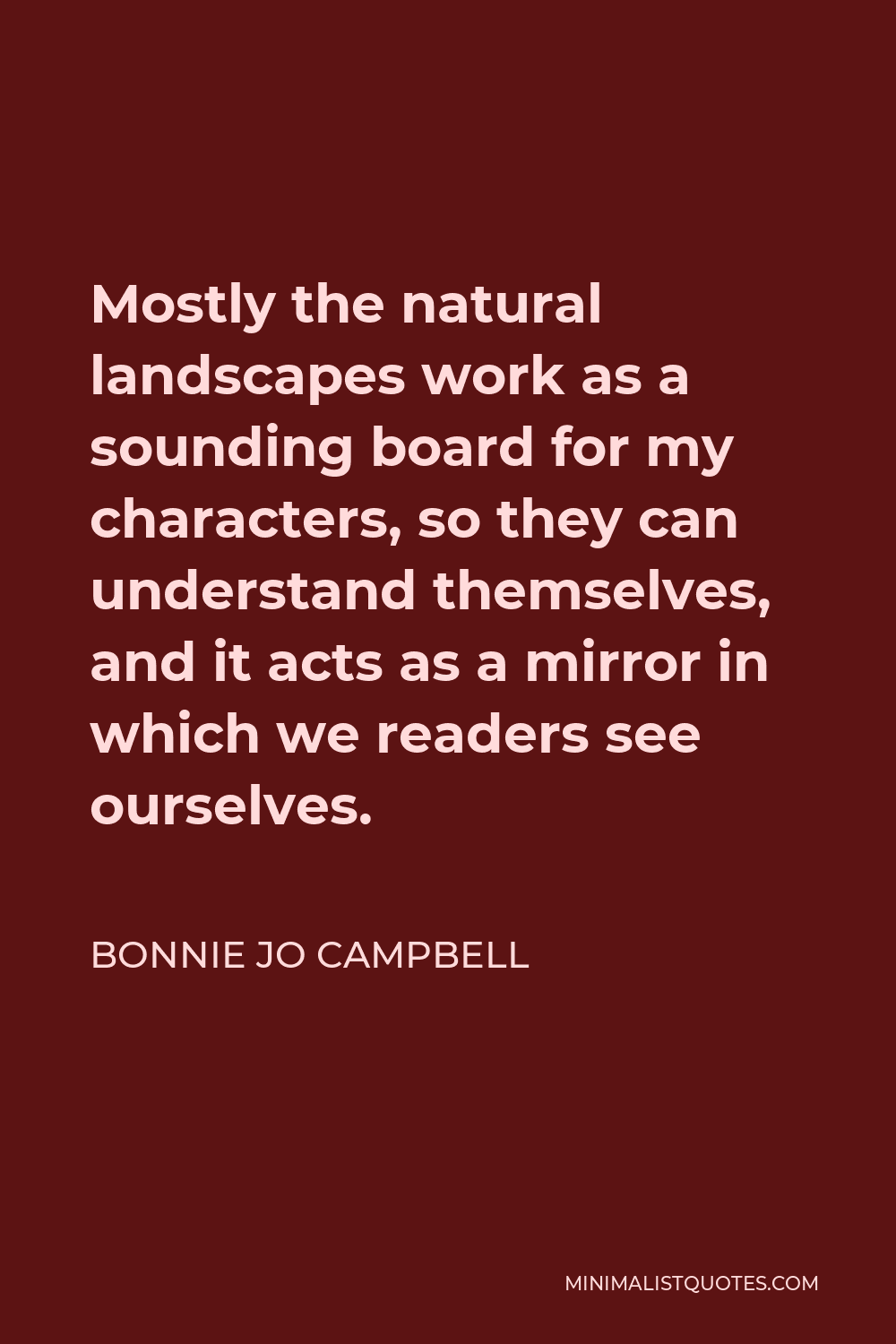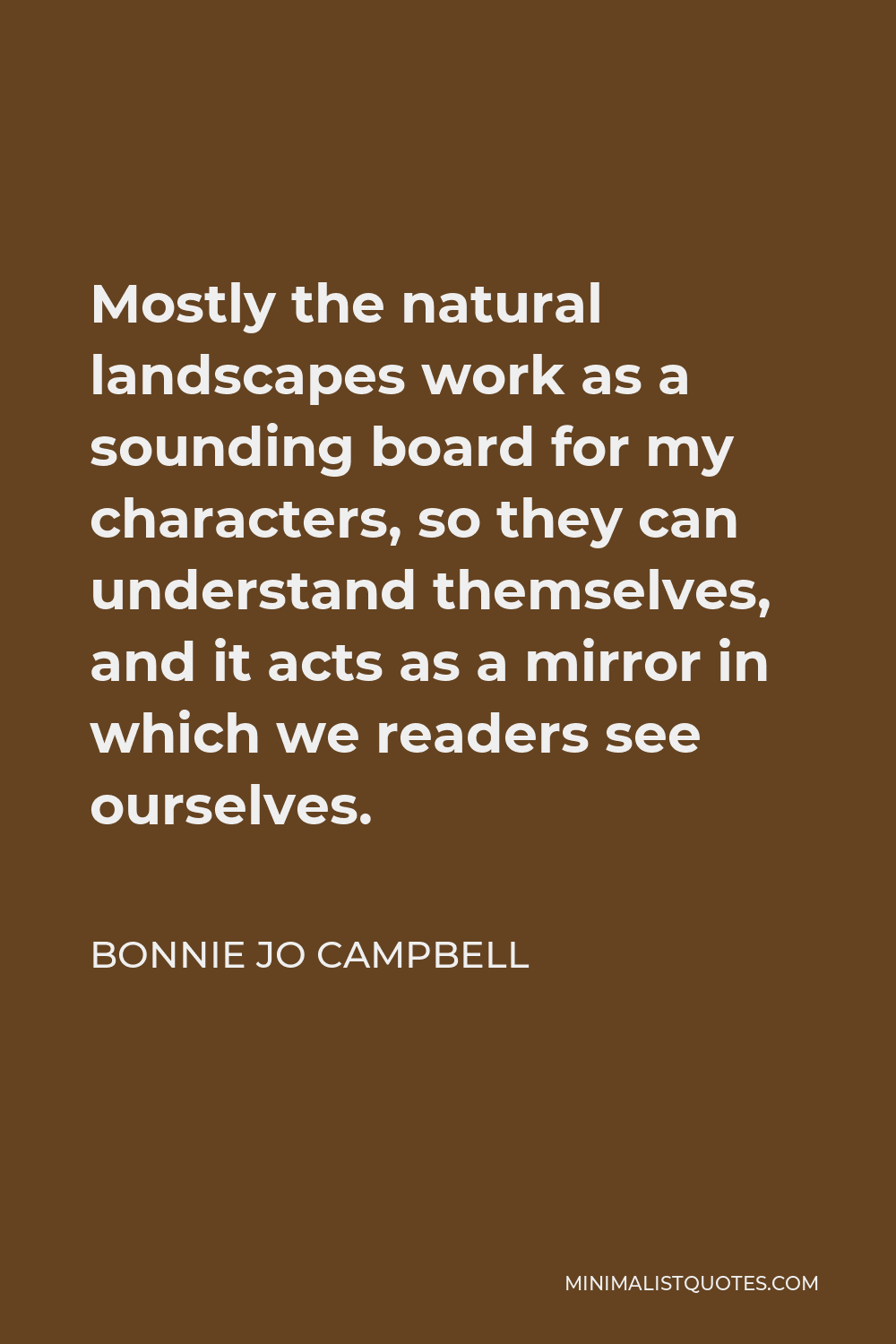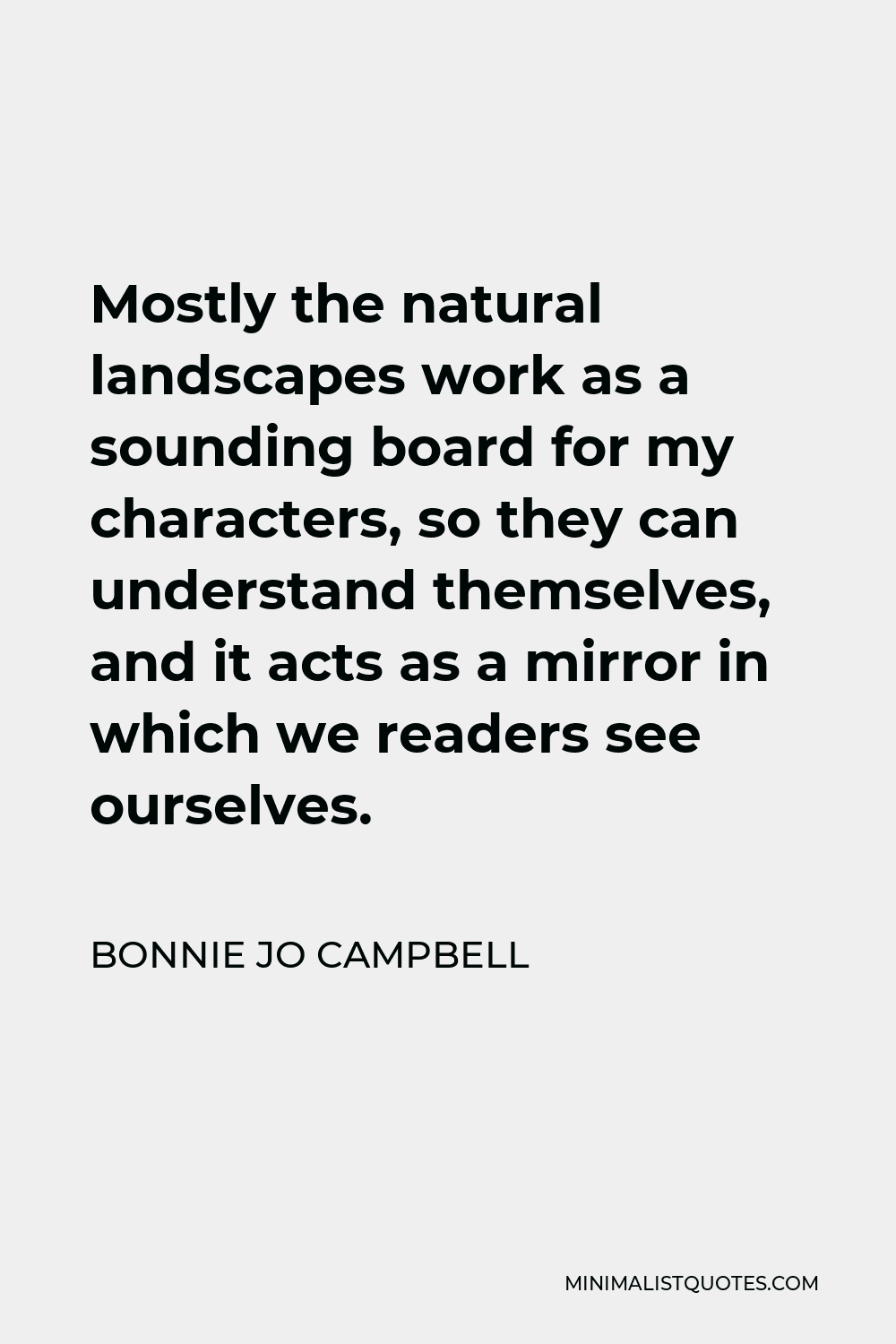I hope that my stories serve as explorations and help show readers how and why real-life women don’t always make the “correct” decisions in the face of economic and sexual troubles.
BONNIE JO CAMPBELLMostly the natural landscapes work as a sounding board for my characters, so they can understand themselves, and it acts as a mirror in which we readers see ourselves.
More Bonnie Jo Campbell Quotes
-





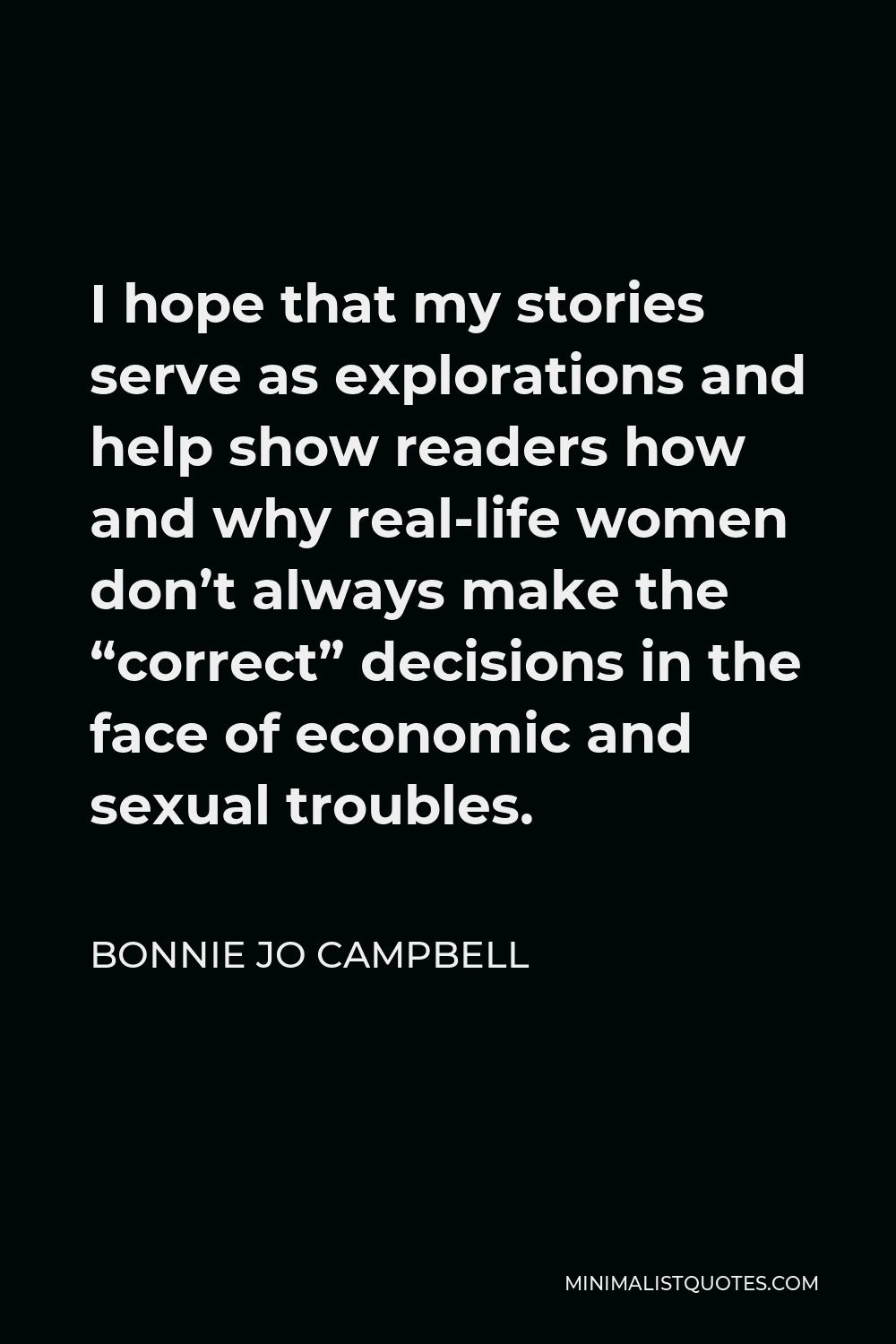
-





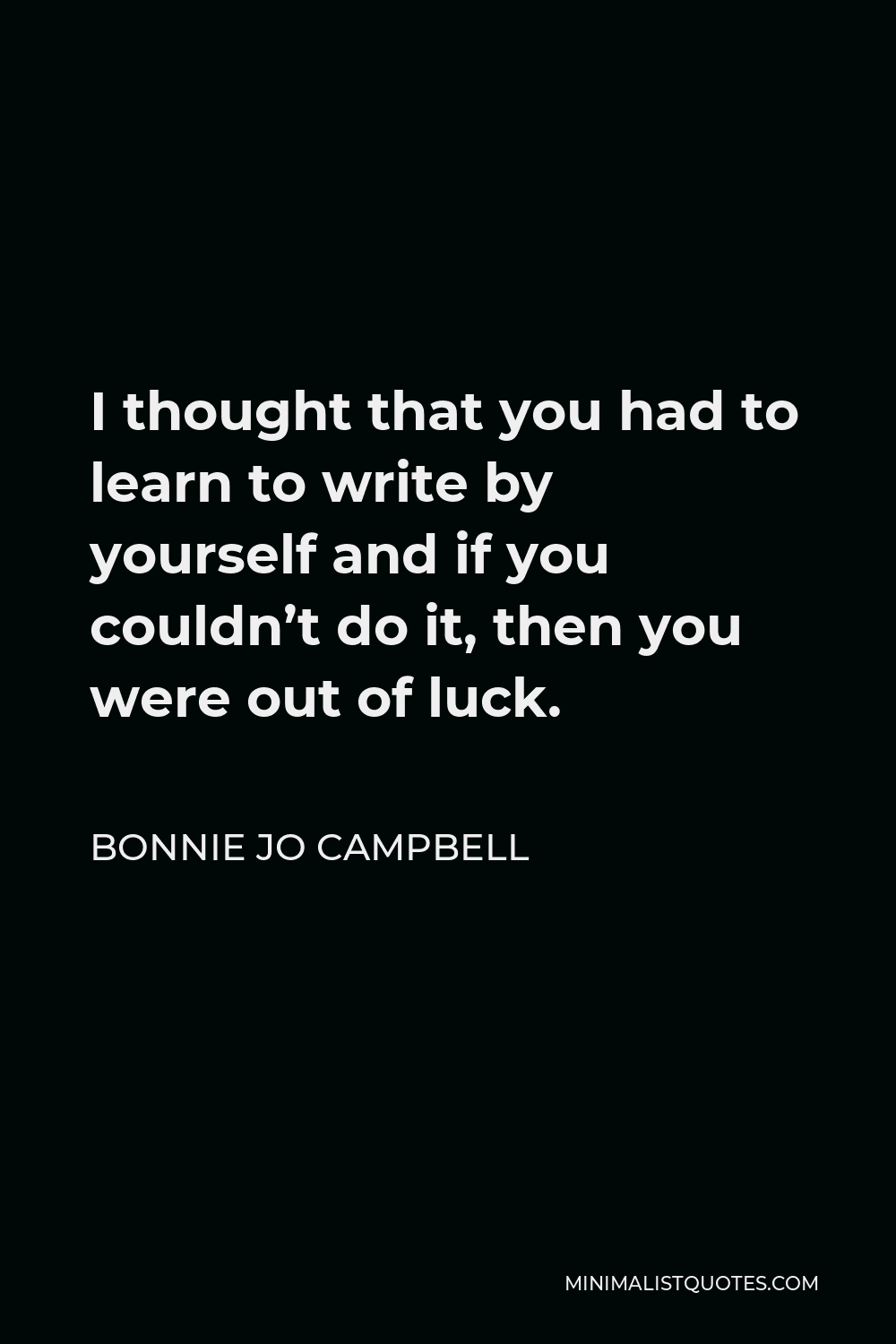
I thought that you had to learn to write by yourself and if you couldn’t do it, then you were out of luck.
BONNIE JO CAMPBELL -






Drugs and drinking affect every family I know, country and city, middle-class and poor.
BONNIE JO CAMPBELL -





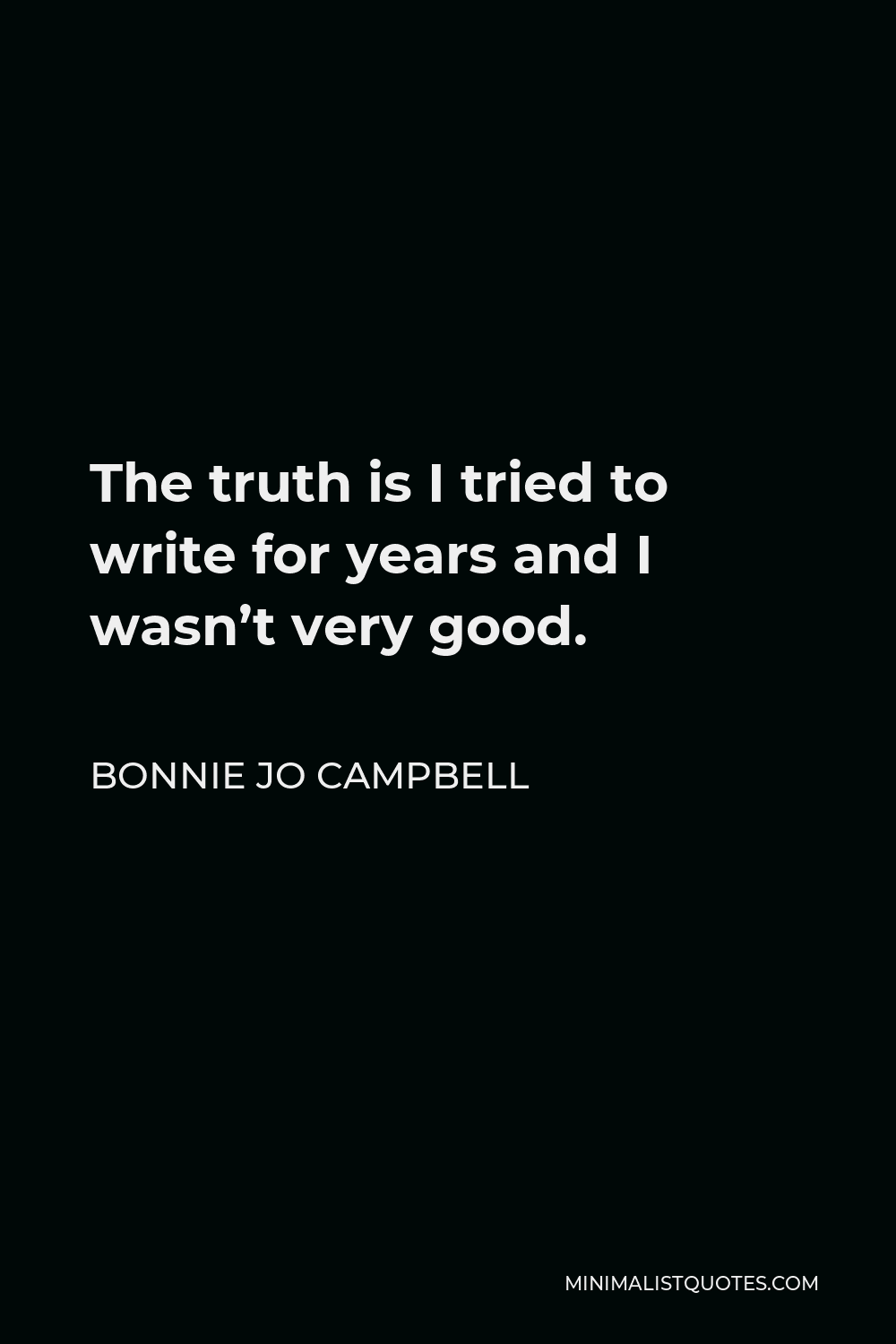
The truth is I tried to write for years and I wasn’t very good.
BONNIE JO CAMPBELL -





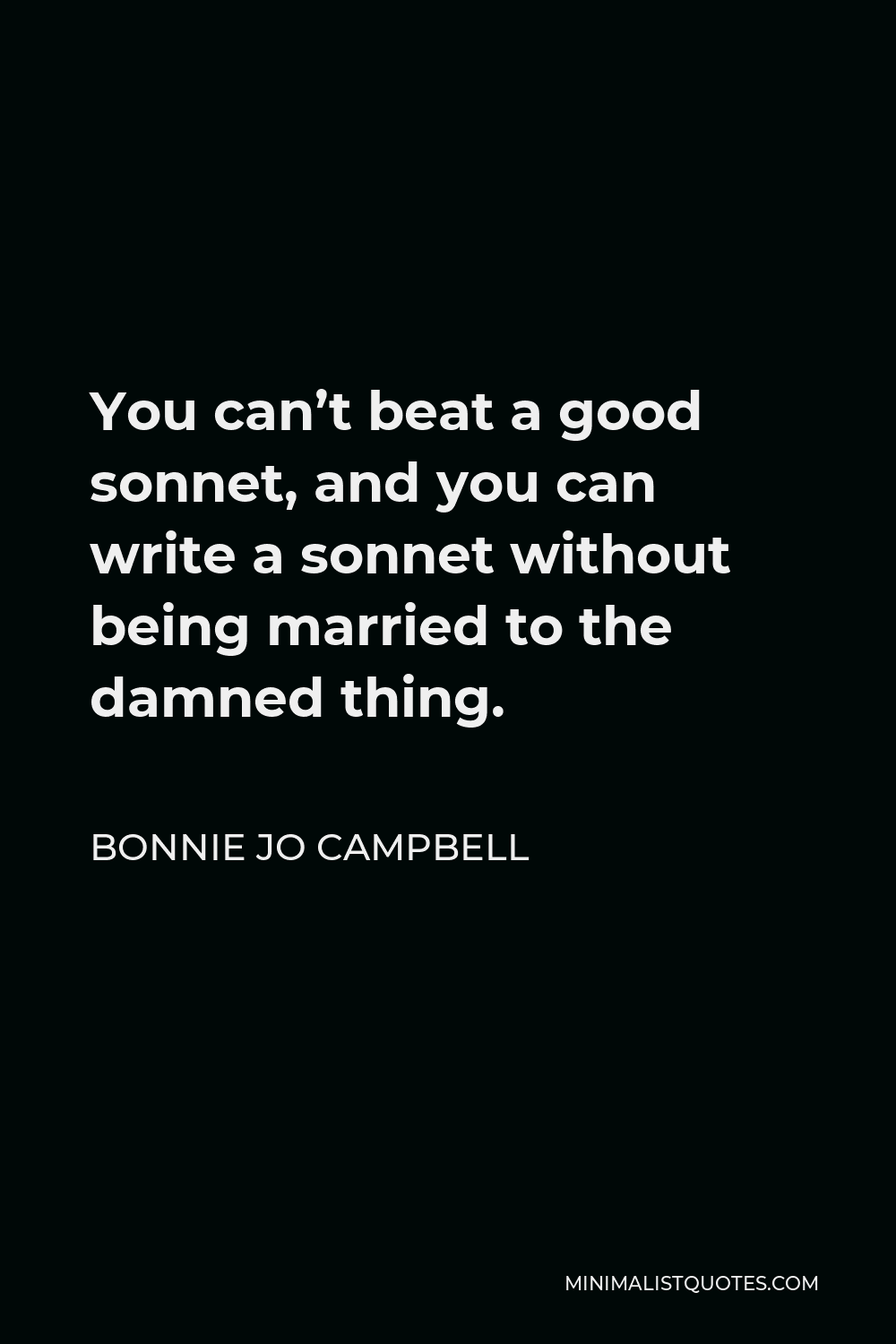
You can’t beat a good sonnet, and you can write a sonnet without being married to the damned thing.
BONNIE JO CAMPBELL -





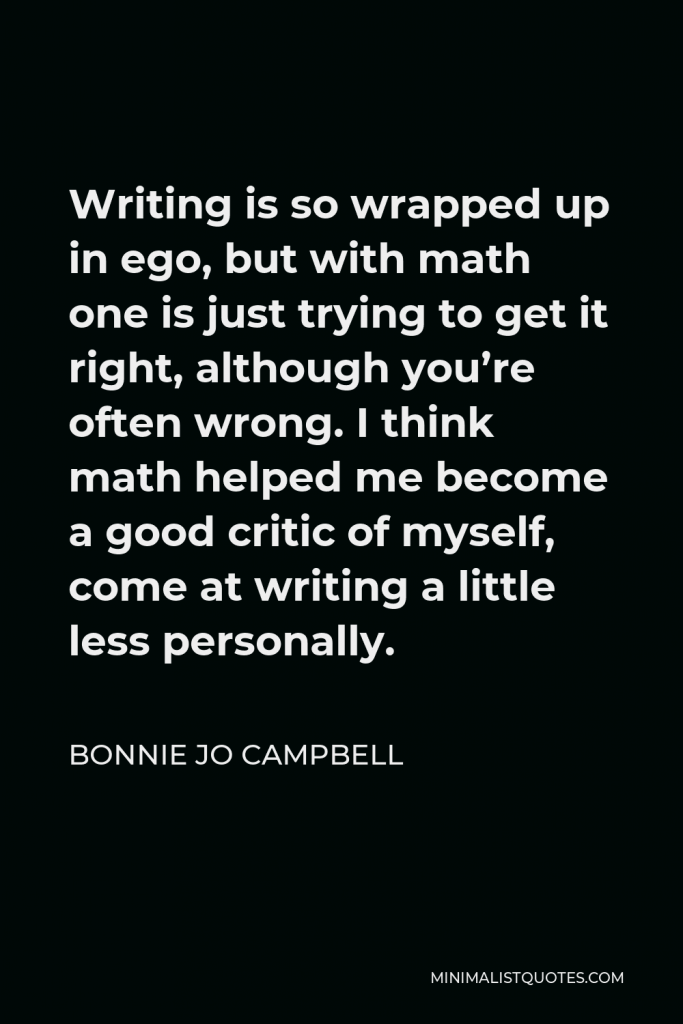

Writing is so wrapped up in ego, but with math one is just trying to get it right, although you’re often wrong. I think math helped me become a good critic of myself, come at writing a little less personally.
BONNIE JO CAMPBELL -





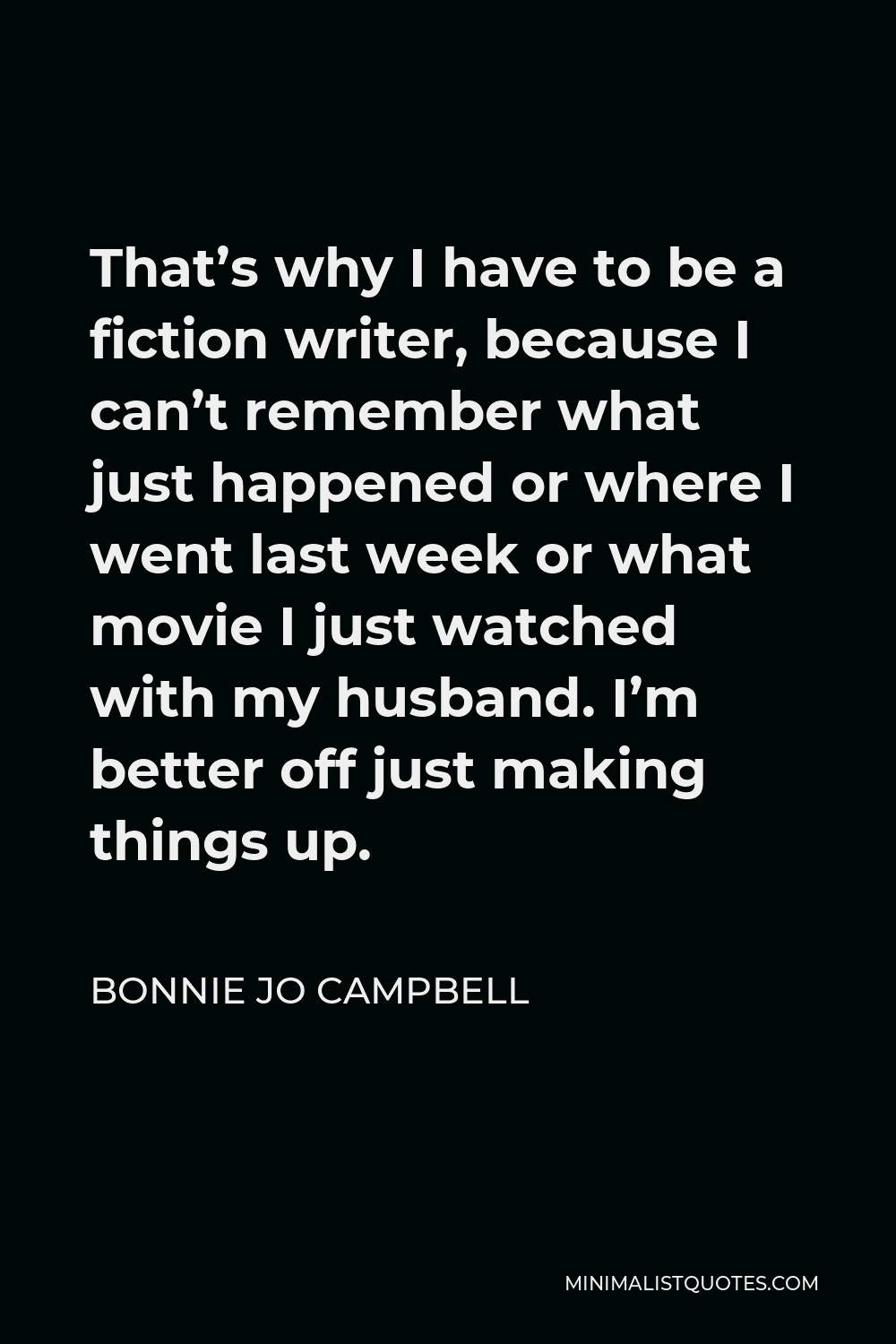
That’s why I have to be a fiction writer, because I can’t remember what just happened or where I went last week or what movie I just watched with my husband. I’m better off just making things up.
BONNIE JO CAMPBELL -





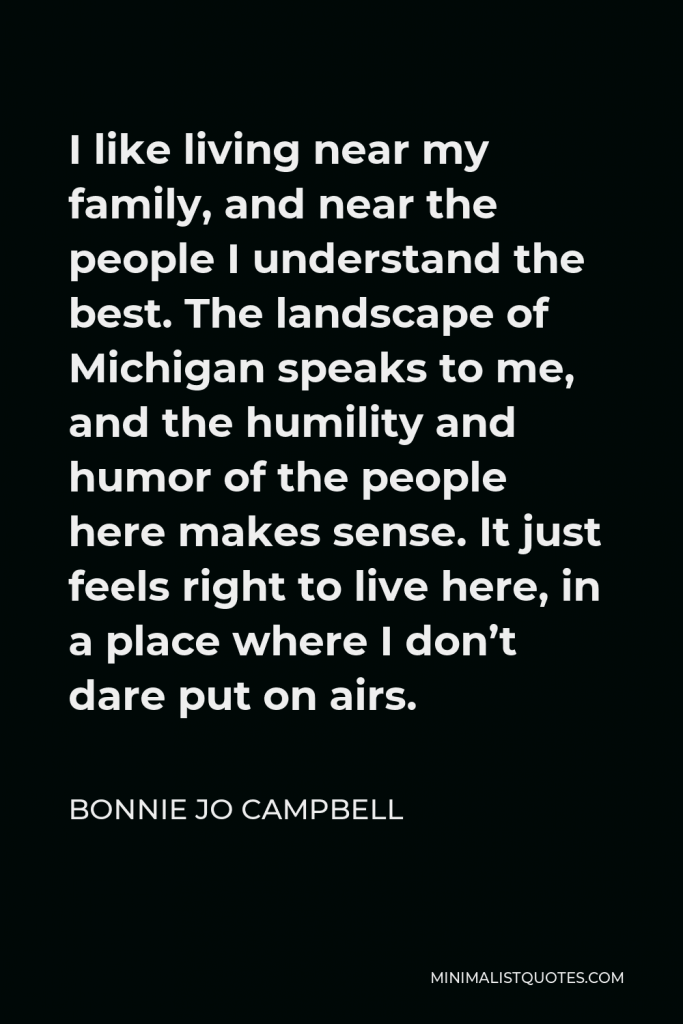

I like living near my family, and near the people I understand the best. The landscape of Michigan speaks to me, and the humility and humor of the people here makes sense. It just feels right to live here, in a place where I don’t dare put on airs.
BONNIE JO CAMPBELL -





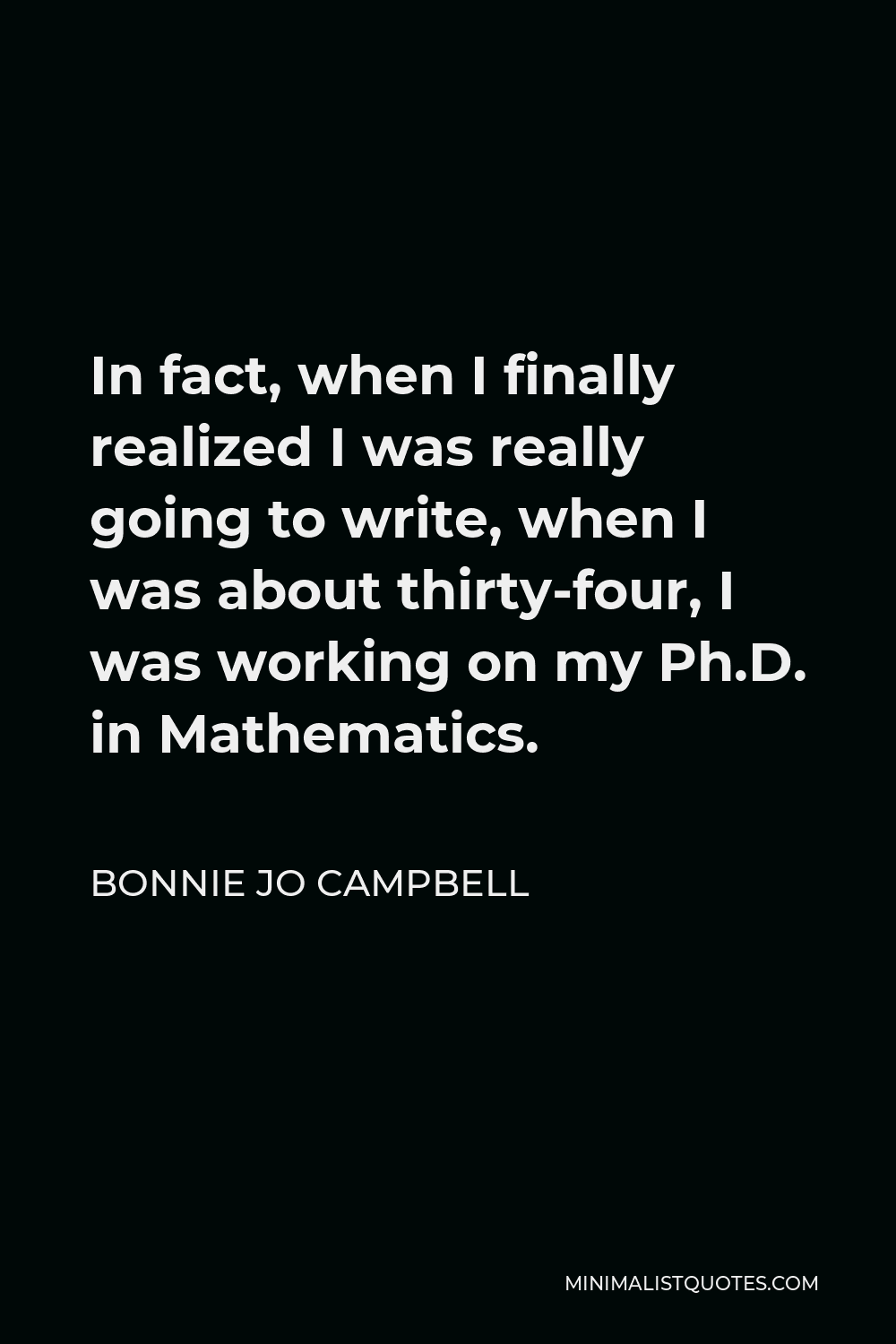
In fact, when I finally realized I was really going to write, when I was about thirty-four, I was working on my Ph.D. in Mathematics.
BONNIE JO CAMPBELL -





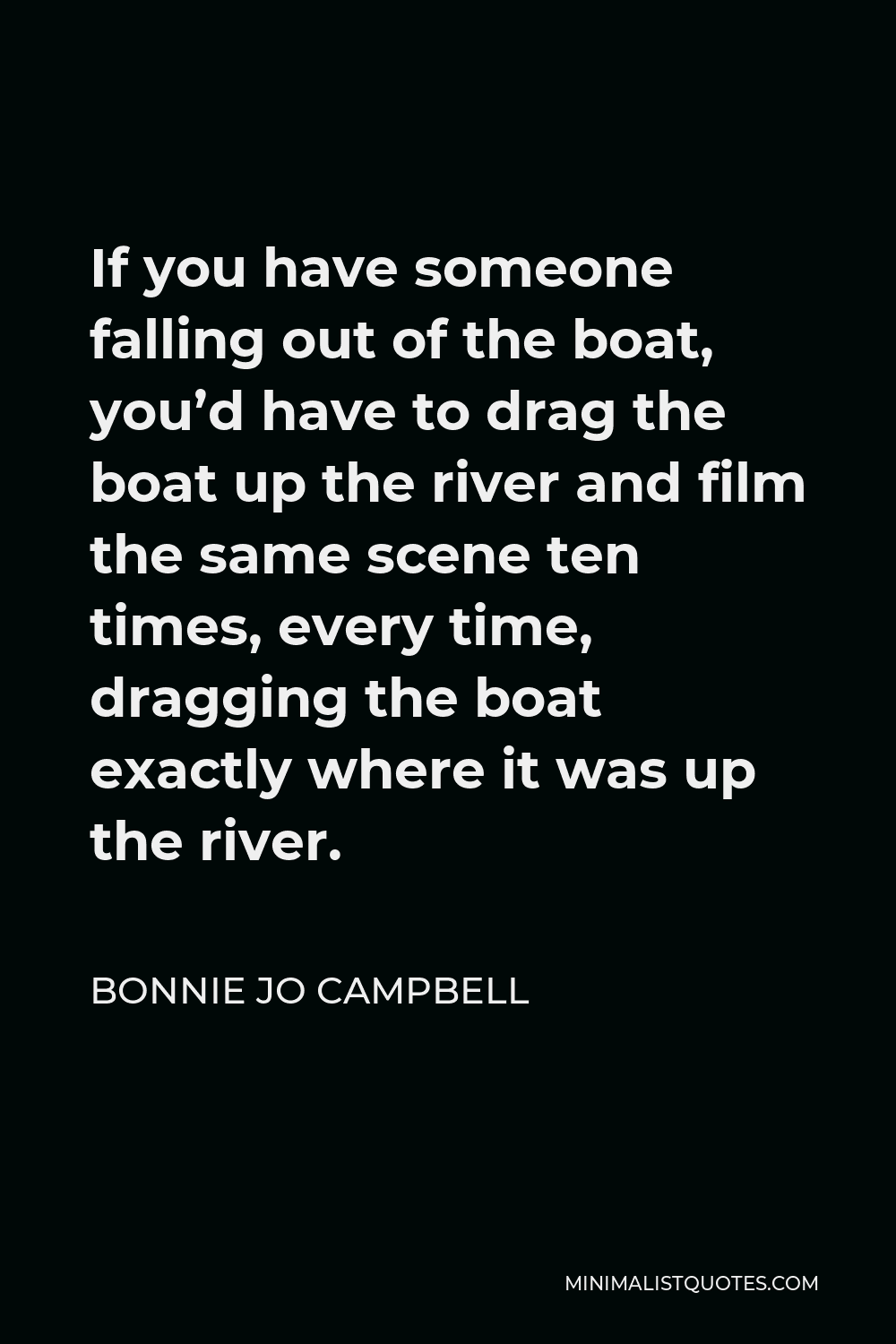
If you have someone falling out of the boat, you’d have to drag the boat up the river and film the same scene ten times, every time, dragging the boat exactly where it was up the river.
BONNIE JO CAMPBELL -





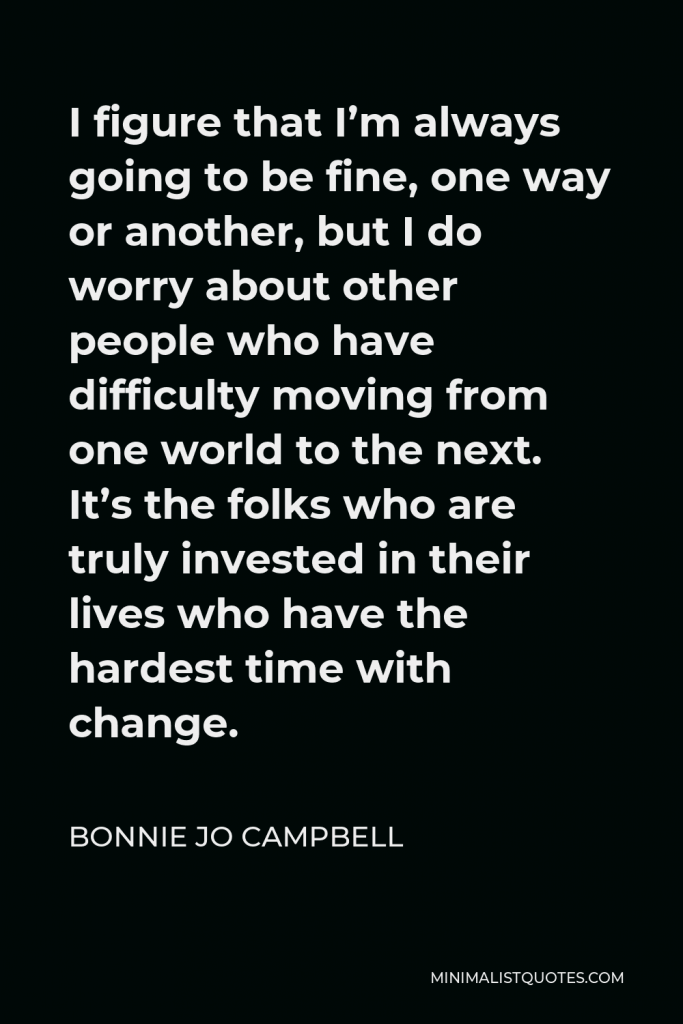

I figure that I’m always going to be fine, one way or another, but I do worry about other people who have difficulty moving from one world to the next. It’s the folks who are truly invested in their lives who have the hardest time with change.
BONNIE JO CAMPBELL -





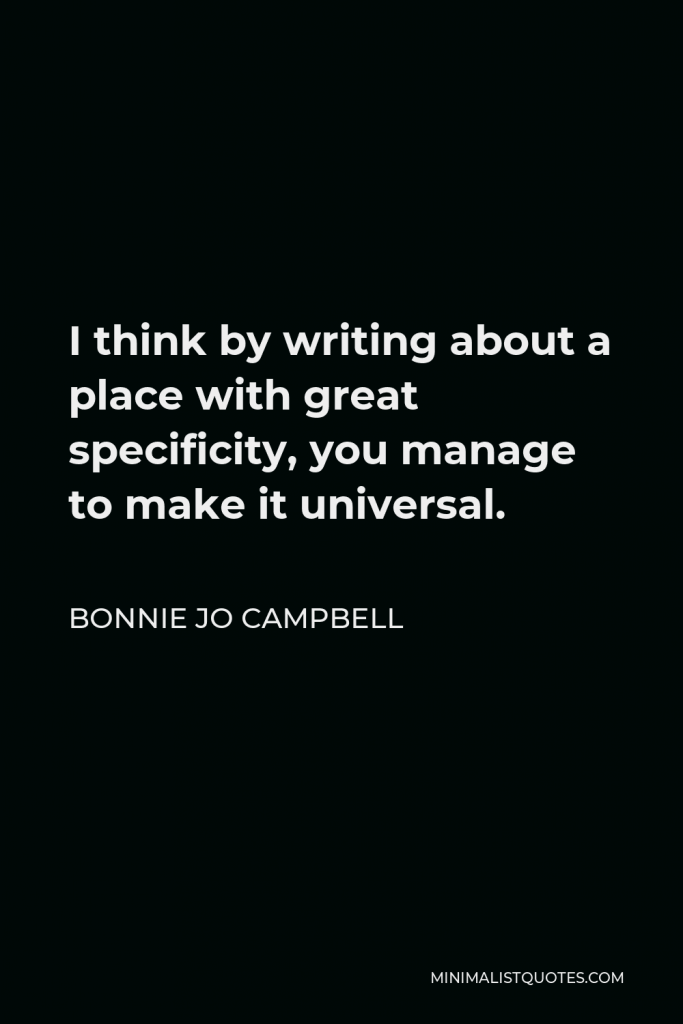

I think by writing about a place with great specificity, you manage to make it universal.
BONNIE JO CAMPBELL -





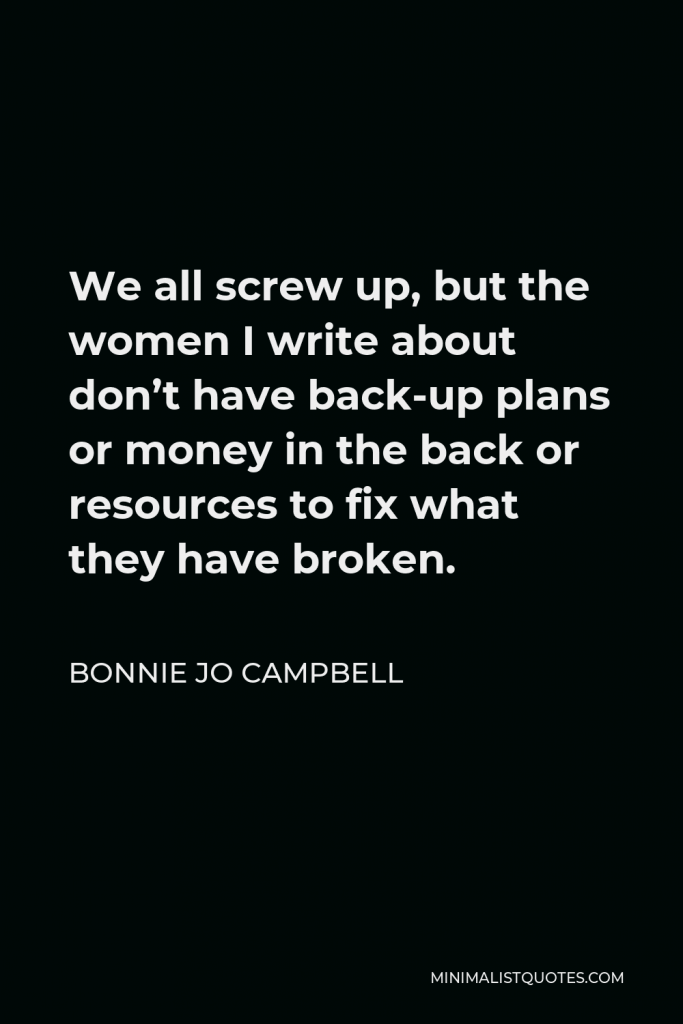

We all screw up, but the women I write about don’t have back-up plans or money in the back or resources to fix what they have broken.
BONNIE JO CAMPBELL -





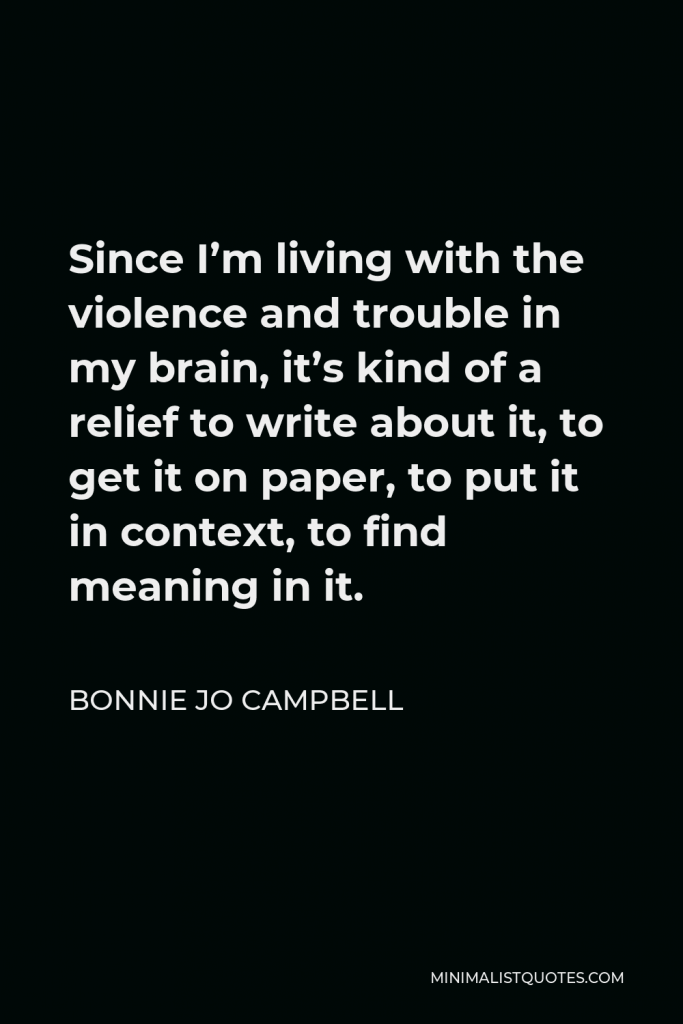

Since I’m living with the violence and trouble in my brain, it’s kind of a relief to write about it, to get it on paper, to put it in context, to find meaning in it.
BONNIE JO CAMPBELL -





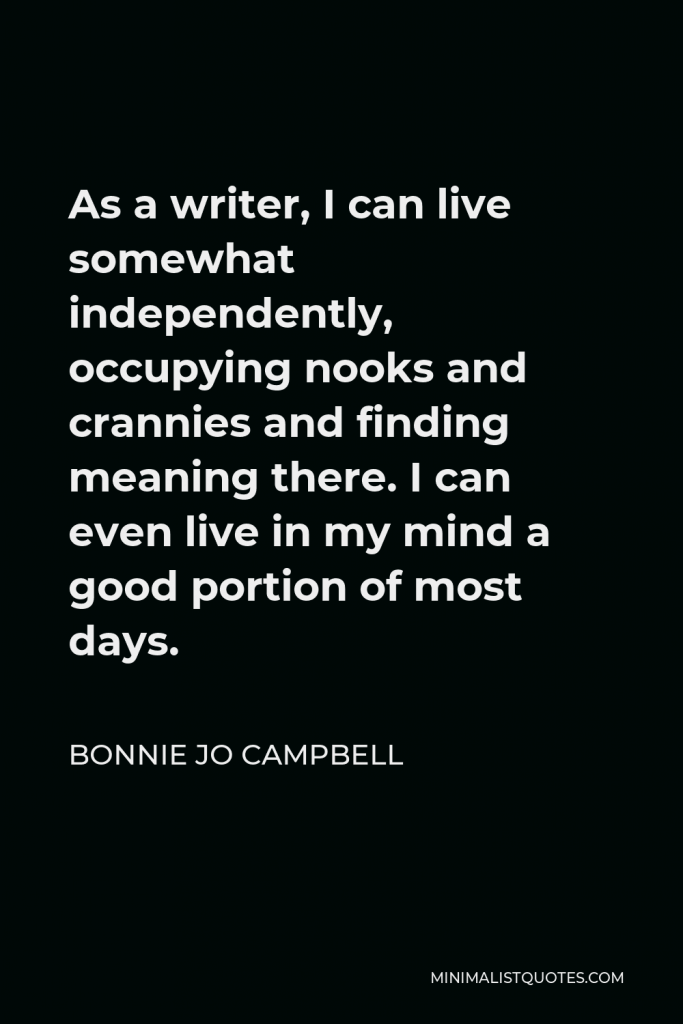

As a writer, I can live somewhat independently, occupying nooks and crannies and finding meaning there. I can even live in my mind a good portion of most days.
BONNIE JO CAMPBELL -





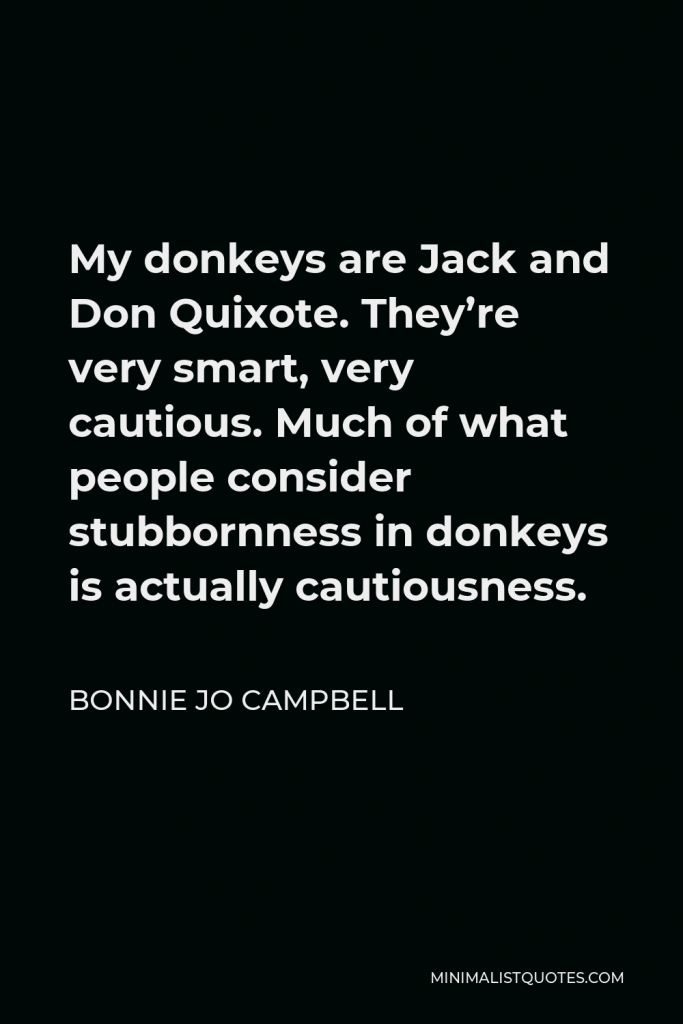

My donkeys are Jack and Don Quixote. They’re very smart, very cautious. Much of what people consider stubbornness in donkeys is actually cautiousness.
BONNIE JO CAMPBELL
